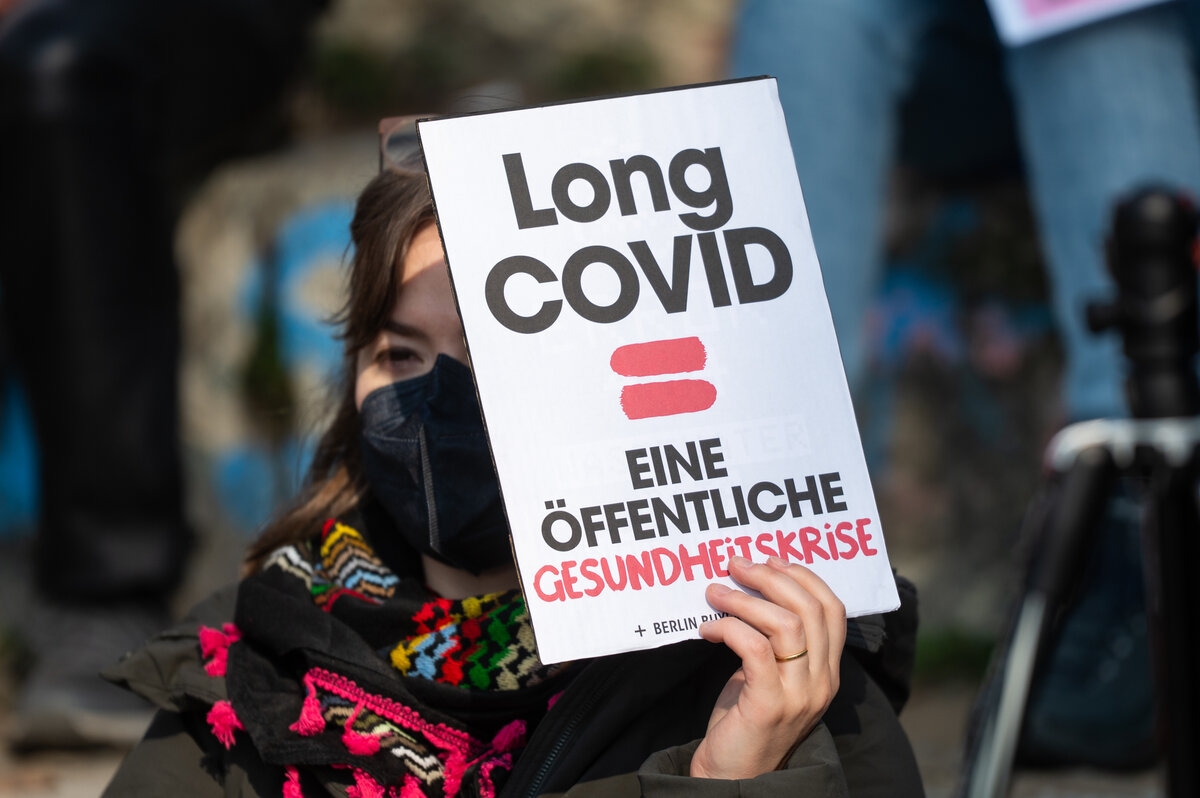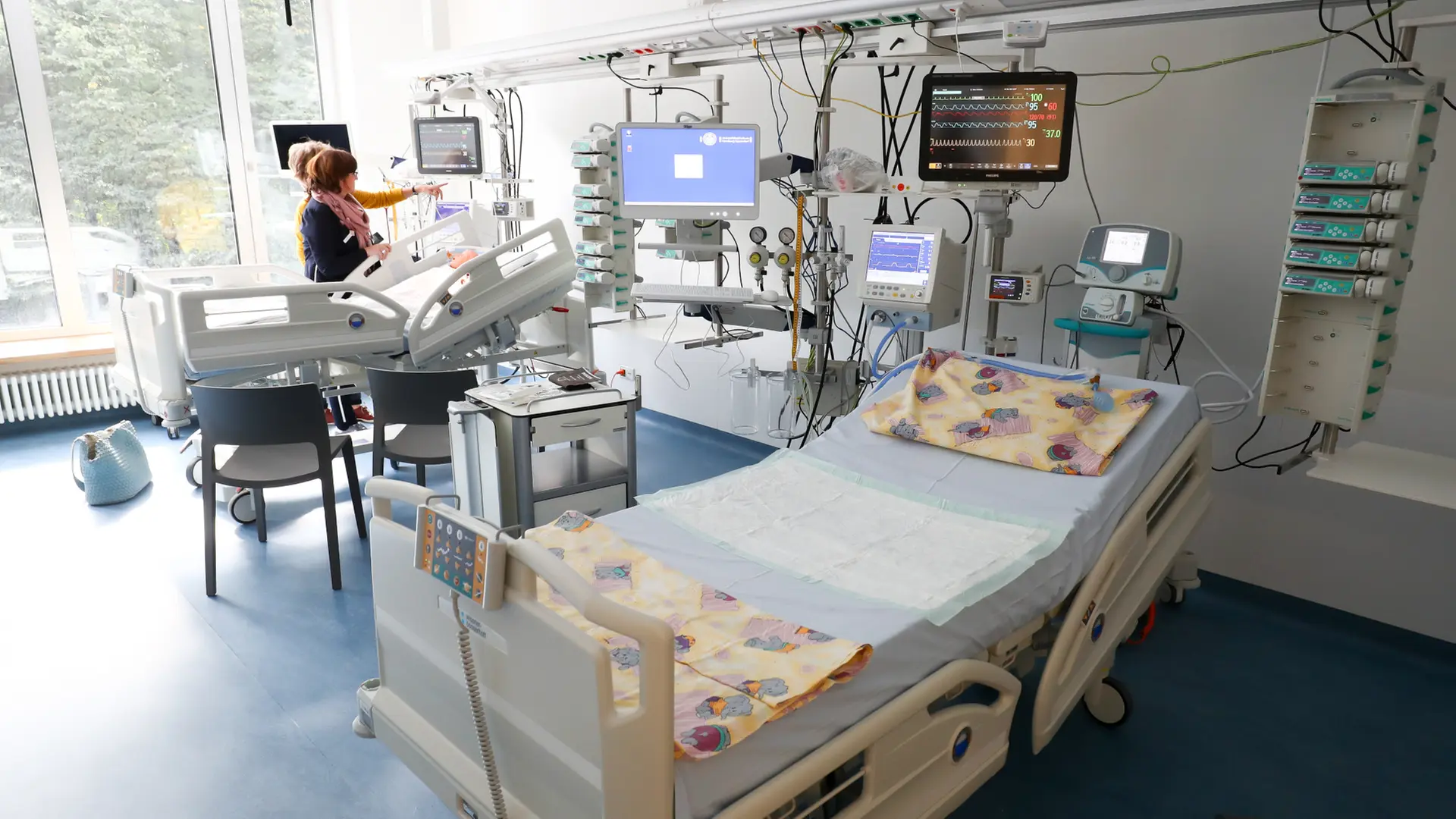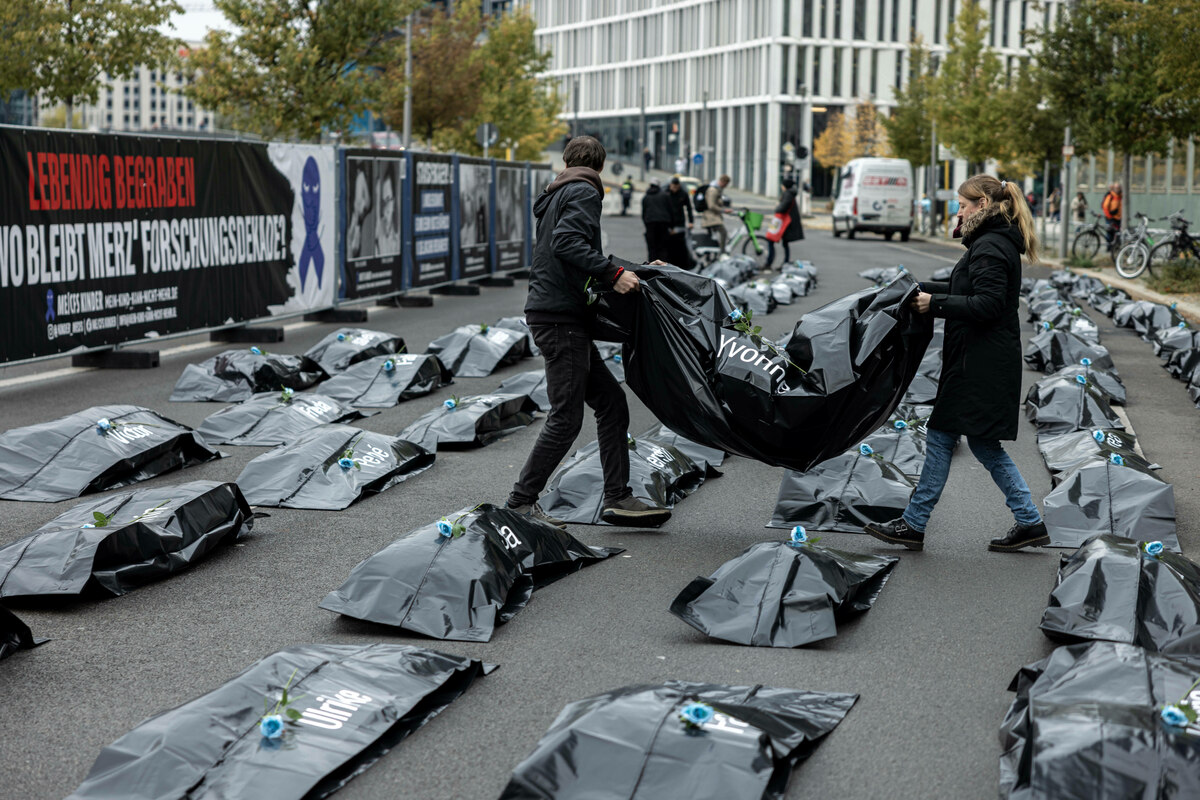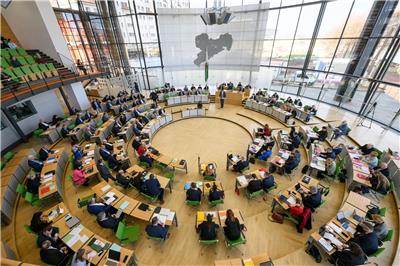Chandelier
Senior Member (Voting Rights)

Diagnose Long Covid und ME/CFS: „Das Krankheitsbild macht unsichtbar“
Fabian Fritz trat gerade eine Professur an, als er an Long Covid erkrankte. Heute bekommt der 38-Jährige Rente und kämpft gegen Stigmatisierung.
TAZ has a 1300 word interview with former social pedagogy professor and pwLC Fabian Fritz.
His condition worsened considerably after activity therapy during a rehabilitation clinic stay:
I wasn’t doing all that badly until my first day-clinic stay in psychosomatics. There, I relied on the idea that it must be right when they say: exercise is good for you. But this activation therapy initially left me bedridden.
The hamburger health committee session in which he speaks will be today at 17:00 GMT+1. The livestream can be found here: https://www.hamburgische-buergerschaft.de/aktuelles/ausschusssitzungen-live
Fabian Fritz fell ill with Long Covid just after starting a professorship. Now 38, he receives a pension and fights stigma.
Fabian Fritz will speak in Hamburg’s health committee about inadequate care for people with Long Covid and ME/CFS. Representing the patient organization Fatigatio, he describes himself as a prototype case reflecting both misdiagnosis and the potential for improvement through medication. According to Fritz, Hamburg lacks any contact point for post-infectious diseases and is one of the few German states without Long Covid clinics for adults. He even had to move to Thuringia after his Hamburg GP told him he could expect no help locally.
Fritz, a social pedagogue who briefly held a professorship, became severely ill in 2024, at times 95 percent bedridden. A study later provided him with medication that improved his condition to about 30 percent of his former capacity—unlike activation therapy, which had worsened his health. Cognitive limitations remain significant.
He went public to counter stigma. Colleagues assumed burnout rather than Long Covid, reinforcing how invisible the illness is. Through his network at FC St. Pauli, he helped launch a campaign to use stadiums as platforms for ME/CFS awareness, prompting many patients to step out of their “invisibility.”
Fritz identifies three needs: differential diagnostics, long-term medical care, and societal support to address stigma, alongside more research into biological causes. He argues for a social status comparable to patients with cancer or MS and calls for public campaigns similar to those for HIV/Aids. The term “exhaustion illness” trivializes the condition, which includes severe neurological symptoms.
Financially, he now lives in poverty on about 800 euros in pension and has applied for housing benefits. The disease hits single mothers and young patients especially hard. He warns that political plans such as abolishing care grades could worsen poverty among the affected. His appeal to policymakers: build diagnostic and care structures in Hamburg and counter the use of stigma as a weapon against patients.
Fabian Fritz will speak in Hamburg’s health committee about inadequate care for people with Long Covid and ME/CFS. Representing the patient organization Fatigatio, he describes himself as a prototype case reflecting both misdiagnosis and the potential for improvement through medication. According to Fritz, Hamburg lacks any contact point for post-infectious diseases and is one of the few German states without Long Covid clinics for adults. He even had to move to Thuringia after his Hamburg GP told him he could expect no help locally.
Fritz, a social pedagogue who briefly held a professorship, became severely ill in 2024, at times 95 percent bedridden. A study later provided him with medication that improved his condition to about 30 percent of his former capacity—unlike activation therapy, which had worsened his health. Cognitive limitations remain significant.
He went public to counter stigma. Colleagues assumed burnout rather than Long Covid, reinforcing how invisible the illness is. Through his network at FC St. Pauli, he helped launch a campaign to use stadiums as platforms for ME/CFS awareness, prompting many patients to step out of their “invisibility.”
Fritz identifies three needs: differential diagnostics, long-term medical care, and societal support to address stigma, alongside more research into biological causes. He argues for a social status comparable to patients with cancer or MS and calls for public campaigns similar to those for HIV/Aids. The term “exhaustion illness” trivializes the condition, which includes severe neurological symptoms.
Financially, he now lives in poverty on about 800 euros in pension and has applied for housing benefits. The disease hits single mothers and young patients especially hard. He warns that political plans such as abolishing care grades could worsen poverty among the affected. His appeal to policymakers: build diagnostic and care structures in Hamburg and counter the use of stigma as a weapon against patients.







